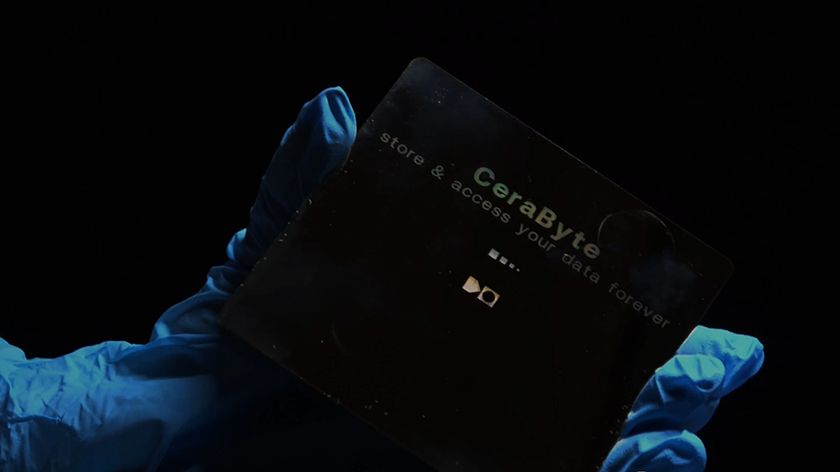How technology plans to save the planet
But will any of these 10 crazy ideas actually work?
There's no doubt that our love of technology is contributing to climate change - but can technology become a force for good, saving us from fiery doom?
These ten technologies could help save the world, but are they real solutions or are we just fiddling while the planet goes to pot?
1. Break our oil addiction
EU scientists believe that a "supergrid" combining wind and wave energy with the output of massive Mediterranean and North African solar farms could help Europe become zero-carbon. It's not a quick or cheap fix, though: just installing the necessary high-voltage lines would cost $1 billion per year for the next 40 years.
Reality check: Doug Parr, Greenpeace UK's chief scientist, says: "assuming it's cost-effective, a large-scale renewable energy grid is just the kind of innovation we need if we're going to beat climate change."
2. Dig really deep holes
Google.org - the philanthropic arm of Google - is investing $10 million in EGS (Enhanced Geothermal Systems), which gets geothermal energy from under the Earth's crust. Instead of relying on hot springs, EGS fractures hot rock and pumps water through it to create steam, which would power giant turbines.
Get daily insight, inspiration and deals in your inbox
Sign up for breaking news, reviews, opinion, top tech deals, and more.
Reality check: Scientists agree that EGS is certainly possible, but the big concern is whether it can ever be cost-effective. And it might not be entirely trouble-free, either: in 2006, Swiss engineers had to stop an EGS experiment when they triggered an earthquake in Basel.
3. Make our wheels wired
Emission-free electric cars sound great, but they're not much cop if there's nowhere to plug them in. Car makers are beginning to think about the bigger picture. Nissan and Renault have inked a deal with Portugal to build networks of charging stations for its forthcoming (2010 in Japan, 2012 in Europe) electric cars, with other EU countries pondering similar systems.
Reality check: "To be fully sustainable, electric cars need to be powered by clean and renewable energy sources such as solar and wind," says Greenpeace.
4. Make our homes work
Technology for ultra-efficient homes exists already: low-power LED lighting, super-efficient central heating boilers, effective insulation and water-conserving plumbing can massively reduce the typical home's energy demands, while solar panels and wind turbines can reduce your reliance on the National Grid. Scott Specht's Zero House shows what's possible.
Reality check: "27% of the UK's carbon dioxide emissions come directly from the way we use energy in our homes," the Energy Savings Trust reports. Making a home zero-carbon costs £35,000, but the EST expects costs to plummet.
5. Make our gadgets green
Devices on standby waste huge amounts of energy, with gadget chargers and TVs being big offenders. Green Plug could solve the first problem by creating a new standard for chargers.
The technology uses standard USB connectors but kills the power when devices are fully charged, saving stacks of energy.
As for the latter, if turning off the telly is too much like hard work the One For All Energy Saver turns your home entertainment kit off from the comfort of your sofa.
Reality check: The EST says that if everyone in the UK with a set-top box switched it off at night, we'd save enough energy to make 80 billion cups of tea.
6. Get energy from everywhere
"Energy scavenging" means capturing energy from vibration, heat, sound or light sources - a bit like those Seiko Kinetic watches that recharge as you wave your arms around, but on a bigger scale.
Researchers at Ohio University have found a way to turn the heat from car exhausts into electricity, and it may be possible for the movement of cars across bridges to generate power. One inventor has even found a way to create electricity from knees.
Writer, broadcaster, musician and kitchen gadget obsessive Carrie Marshall has been writing about tech since 1998, contributing sage advice and odd opinions to all kinds of magazines and websites as well as writing more than a dozen books. Her memoir, Carrie Kills A Man, is on sale now and her next book, about pop music, is out in 2025. She is the singer in Glaswegian rock band Unquiet Mind.












